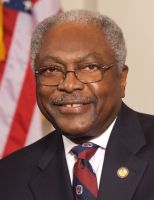MUSC dedicates new bioengineering and drug discovery hubs
October 22, 2011CHARLESTON, SC – October 21, 2011 – Federal, state and local dignitarieshelped usher in a new chapter in South Carolina’s growing biomedicalresearch effort with the dedication of a laboratory complex designed tospeed up cures and treatments for major diseases.
The complex, housing 78 labs and other facilities, signifies a breakfrom the traditional research approach by combining scientists fromdifferent fields and allowing them to communicate more effectively. Thetwo buildings – one for bioengineering and one for drug discovery – areinterconnected, as are the labs within them. By combining experts fromdifferent disciplines in modern facilities with easier access, MUSChopes to take the science as quickly as possible from the lab to thepatient’s bedside with improved treatments, medications and medicaldevices. Cancer, Alzheimer’s disease and heart disorders are just someof the medical problems scientists will study in the new complex.
The complex was named after U.S. Rep. James E. Clyburn (D-SC) for hislong-standing efforts to correct health disparities in South Carolinaand for his support of biomedical research.
Within the center, investigators from numerous MUSC departments sharespace with scientists, faculty and students from Clemson University andthe University of South Carolina. Large auditoria and teleconferencingtechnologies allow face-to-face interaction with investigators aroundthe world. The first international symposium will be held there within amonth, bringing together leading heart researchers from across theworld.
The center also will promote more partnerships with private industry tohelp speed up technology transfer and intellectual propertycommercialization. It will house at least eight of the state-supported SmartState Center of Economic Excellence Endowed Chairs who wererecruited to help drive the knowledge-based economy of the state. Thestate also played a critical role in funding the construction of thebuildings, with half of the cost paid through the Research UniversityInfrastructure Act passed by the S. C. General Assembly in 2004. Theresult is a place where some of the state’s best minds in medicine,chemistry, physics, engineering, and genetics can accelerate the rate atwhich they can collect, interpret and apply new information.
“The discoveries coming out of these buildings will enable us todiagnose problems earlier and treat them more effectively, and also willhelp us to address health disparities that exist in our state. Our hopeis that this research center will result in a stronger and more vibrantbiomedical community in Charleston and South Carolina,” said MUSCPresident Ray Greenberg. “If you want to know what our strategic planfor addressing the health needs of this state looks like, just take alook at what will be happening in these two buildings.”
Breeding discovery and economic growth
In addition to leveraging the state’s investment in research andeducation, the center also puts the state in a stronger position torecruit more world-class researchers through the SmartState Centers ofEconomic Excellence Endowed Chairs program and other initiatives. Inthis same vein, statewide collaboration across all three researchinstitutions and current endowed chairs is key in pushing healthdiscoveries forward. For example, Clemson University President James F.Barker said that the university has worked in biomaterials since the1960s. However, faculty quickly determined that although there was agood understanding of biomaterials, they lacked such an understanding ofmedicine or surgery. Those strengths were found at MUSC and otherpartners. When combined, there exists a real opportunity to make adifference in the quality of life of the people of our state, Barkersaid. “This partnership has been building for some time, and I’mdelighted to see the program have a home at the James E. ClyburnResearch Center at MUSC,” he said. “This facility will become home tosome amazing advances in technology.”
University of South Carolina President Harris Pastides echoed Barker’scomments: “Congressman Jim Clyburn’s advocacy for the health and wellbeing of the citizens of this state is well known. The research andclinical care that will take place here, through the collaboration ofscientists and health care professionals from our state’s three researchuniversities, will make a lasting impact on this state and be a fittinglegacy for a leader who has devoted his career to improving the livesof South Carolinians.”
Eliminating health disparities
Congressman James E. Clyburn represents a congressional district home tosome of the nation’s highest rates of stroke, diabetes and prostatecancer deaths. His district also has fewer than half the number ofphysicians per 1,000 people than the rest of the state. Technologiesthat come out of these buildings will fundamentally change how care isdelivered, and work to remove geography and diminish economics asbarriers to state-of-the-art care.
 I am deeply honored to have my name associated with the MedicalUniversity of South Carolina and the great work that will take place inthese research facilities. My commitment to addressing inequities inour health care system has been a lifelong passion, and it is animportant mission here at MUSC. This state-of-the-art research center isevidence of this university’s commitment to improving and advancing thedelivery of health care, and I am proud to be a part of it,” Clyburnsaid.
I am deeply honored to have my name associated with the MedicalUniversity of South Carolina and the great work that will take place inthese research facilities. My commitment to addressing inequities inour health care system has been a lifelong passion, and it is animportant mission here at MUSC. This state-of-the-art research center isevidence of this university’s commitment to improving and advancing thedelivery of health care, and I am proud to be a part of it,” Clyburnsaid.
About MUSC
Founded in 1824 in Charleston, The Medical University of South Carolina is the oldest medical school in the South. Today, MUSC continues thetradition of excellence in education, research, and patient care. MUSCeducates and trains more than 3,000 students and residents, and hasnearly 13,000 employees, including approximately 1,500 faculty members.As the largest non-federal employer in Charleston, the university andits affiliates have collective annual budgets in excess of $1.7 billion.MUSC operates a 700-bed medical center, which includes a nationallyrecognized Children’s Hospital, the Ashley River Tower (cardiovascular,digestive disease, and surgical oncology), and a leading Institute ofPsychiatry. For more information on hospital patient services, visit www.muschealth.com.




















